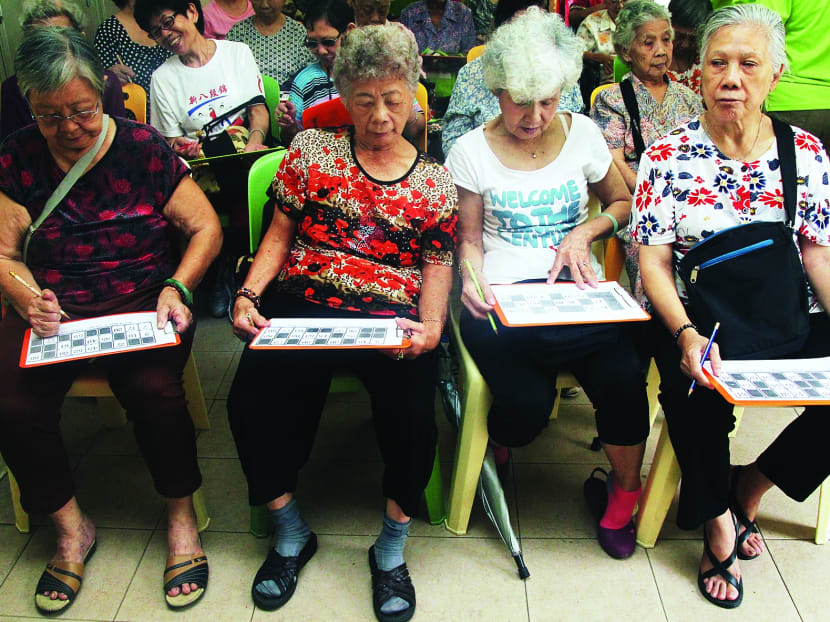A virtual retirement village in the offing, so seniors can age at home
SINGAPORE — With high land costs making it a challenge to build retirement villages, one organisation is looking to build a “virtual” version, where seniors can age in their homes but still have convenient access to services commonly found in a purpose-built retirement community.
SINGAPORE — With high land costs making it a challenge to build retirement villages, one organisation is looking to build a “virtual” version, where seniors can age in their homes but still have convenient access to services commonly found in a purpose-built retirement community.
Ageing Asia, a consultancy on ageing issues, hopes to pilot a “virtual retirement community” next month, which will consolidate services — ranging from physiotherapy to social activities — already available in the market and facilitate access to them, for an annual fee. Transport will be provided to help seniors get around.
“The whole idea is to support them to age and stay healthy at home, yet draw people out of their homes to be socially inclusive in the community,” said Ageing Asia Managing Director Janice Chia at the Ageing Asia Healthcare Technologies Masterclass, a digital healthcare conference, yesterday.
Such communities already exist in the United States, where seniors who join them can expect services like transport to medical appointments, exercise classes and trips to museums.
Ms Chia said the pilot will run for six months with 200 to 300 seniors participating. The organisation hopes to get home care providers, physiotherapists, gyms, technology providers and mobility and health monitoring service providers to take part.
The pilot will be a test-bed for what seniors want in terms of products, services and activities, and the long-term goal is to form satellite retirement communities in different areas — each comprising up to 200 people.
While such villages are common in Australia, Japan and South Korea, the interest in building one in Singapore has been muted. “There are issues with finding the right plot of land, the right cost and there is no incentive for developers because it is such an experimental concept here,” Ms Chia said.
Apart from tapping existing services, Ageing Asia also hopes to create its own services and will hire staff to curate programmes that will range from social inclusion to “brain training” to slow down the onset of dementia. Home care providers can check in on them regularly and provide care should members fall ill.
It also plans to offer regular activities like a monthly high tea featuring guest speakers who will talk about health and nutrition, and other activities based on interests. Such a community can also create economies of scale among its members as items like mobility and health monitoring devices can be purchased in bulk at a discount.
Ms Chia expects to charge members S$800 a year and the first 100 to register for the pilot will not need to pay. The fee goes towards the cost of running the programme and will cover “a basic suite” of services and activities.
Beacon Hill Village in the US, which touts itself as the world’s first virtual retirement village, charges US$640 (S$794) per person. Such communities typically operate on a not-for-profit basis, with revenue coming from membership fees and donations. Rebates are given to those who cannot afford it.
Ms Chia hopes this would be the case here, with government or private funding helping to sustain the project in the long-term.
The pilot is open to anyone aged 55 and above. Those interested can find out more at www.aspire55.com.










